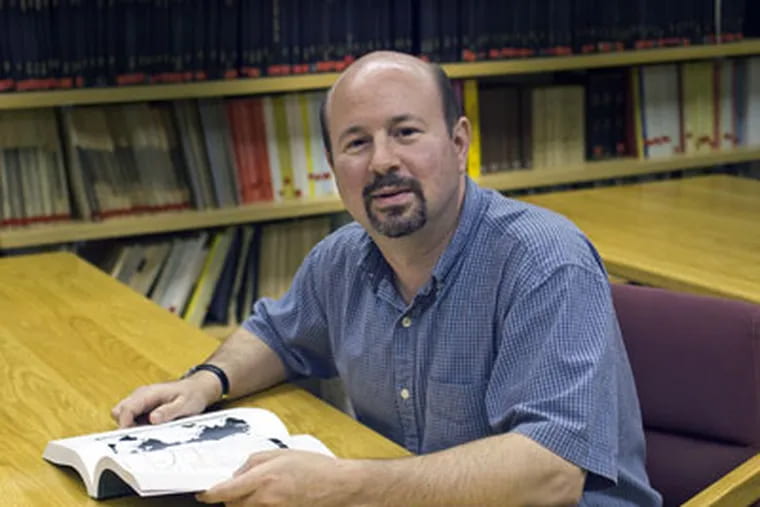Michael Mann, a high-profile Pennsylvania State University climate scientist who has drawn criticism from the right wing, is coming to Philadelphia for a new job.
Mann, 56, who has been at Penn State for 16 years, will join the University of Pennsylvania, where he will lead the new Penn Center for Science, Sustainability and the Media, as well as serve as a presidential distinguished professor in the Department of Earth and Environmental Science. He also will have a secondary appointment in the Annenberg School for Communication.
Penn announced on Tuesday morning Mann’s appointment, which starts Sept. 1.
A native of Amherst, Mass., Mann, with his colleagues, in 1999 created a reconstruction of temperature changes over the last thousand years that showed how humans were affecting the climate. It became known as the “hockey stick” graph because it showed global temperatures taking a sharp upturn. That work served as a lightning rod for those skeptical of climate change.
Penn State received a flood of complaints after some of Mann’s emails were part of a larger leak in 2009 that became known as “climategate,” but the school cleared Mann of any wrongdoing the following year. Mann received death threats during that time. He is also cofounder of the website RealClimate.org.
“Michael Mann has done groundbreaking work on the attribution of extreme weather to climate change and many other aspects of climate science that are of central importance to climate policy,” said Steven J. Fluharty, Penn’s dean of arts and sciences. “He is also a gifted and fearless communicator, providing patient, clear, and informed explanations even in the most hostile media environments.”
Mann said that while he’s enjoyed working at Penn State, the time was right for a change.
“It sort of felt like I had done what I could there, and it was time for a new challenge,” he said.
Mann said that he was attracted to Penn’s strong academic record across all disciplines and that he welcomed the chance to become a part of Annenberg and focus on the communication part of his job.
“That’s become a very big part of what I do these days,” he said, “not just doing science, but trying to communicate science to the public and policymakers, and I’m passionate about that.”
And he said he was impressed with the passion of Penn students and faculty around the issue of climate change. When he visited the campus last fall during climate week, there were about 50 related events taking place, he said. Penn students for years have ardently campaigned to get Penn’s board of trustees to divest from fossil fuels, even disrupting a trustees’ meeting. Penn announced in February 2020 that the school has no direct investments in the thermal coal or tar sands industries and didn’t expect to put its money there in the future, which students took as a small victory.
Mann’s most recent book, The New Climate War, looks at the role of fossil fuels in contributing to attitudes on climate change.
“There’s so much energy on the part of the students and I think the faculty seem to embrace that, which I think is great,” he said.
Mann, whose father, grandfather, and uncle all have Penn degrees, is the first of 10 planned new faculty hires in the university’s new Energy and Sustainability Initiative. The group will work in areas such as diversifying energy sources, energy efficiency, and dealing with pollutants that cause climate change.
